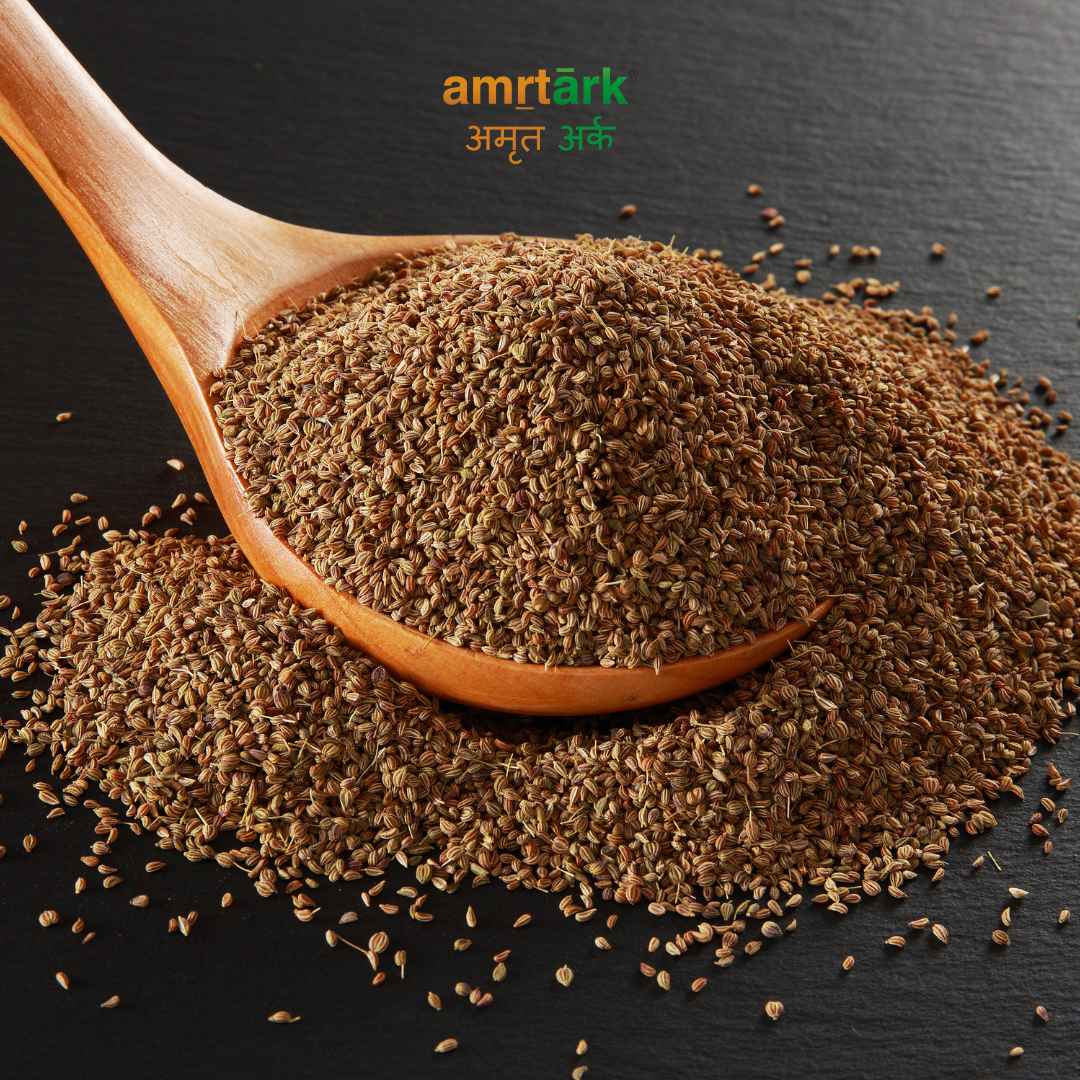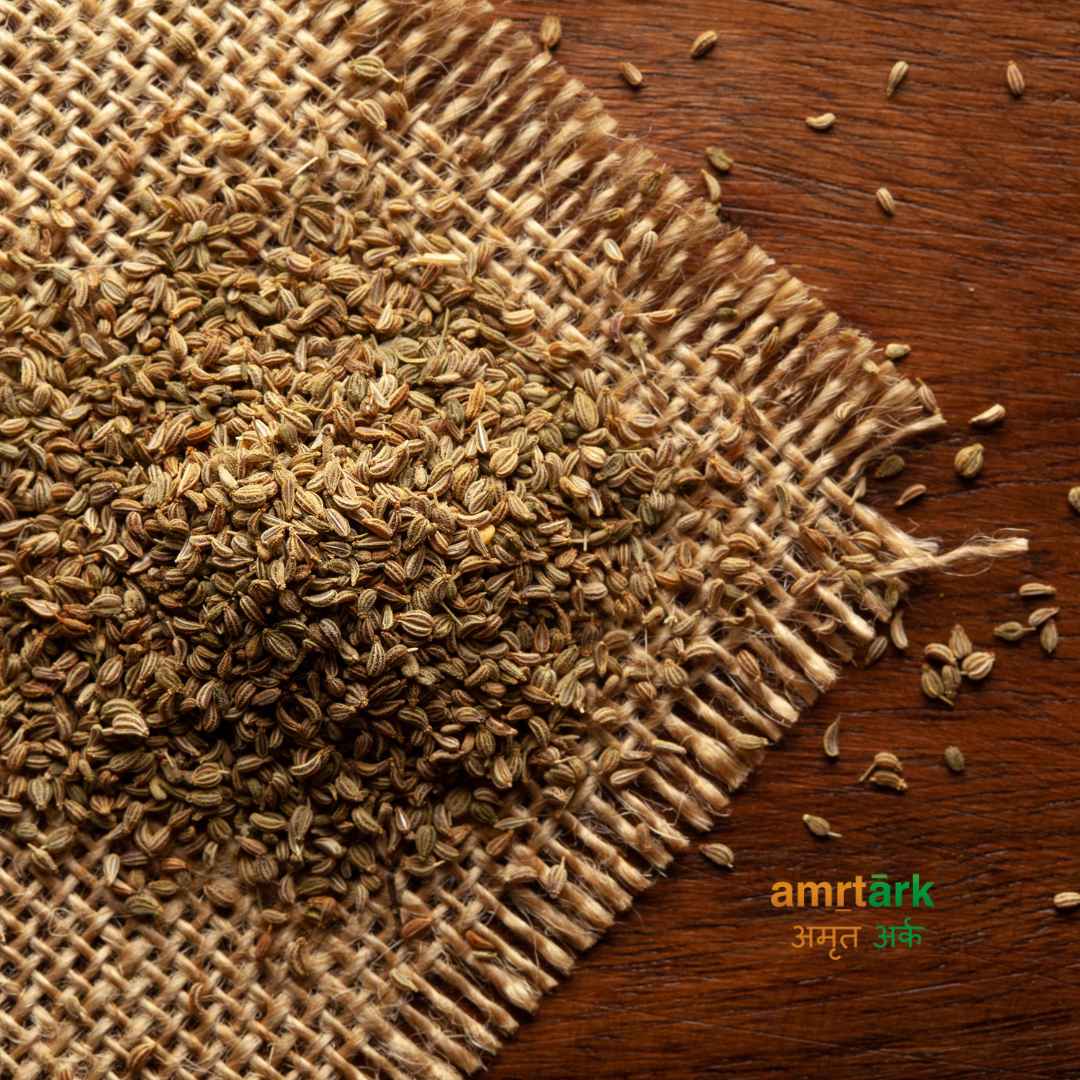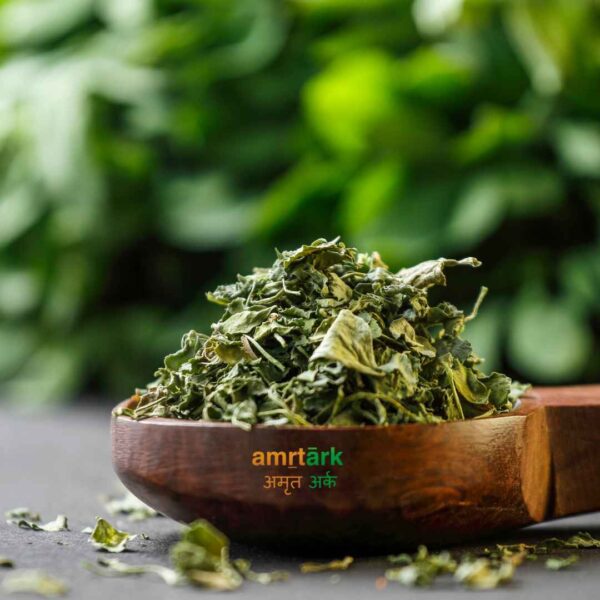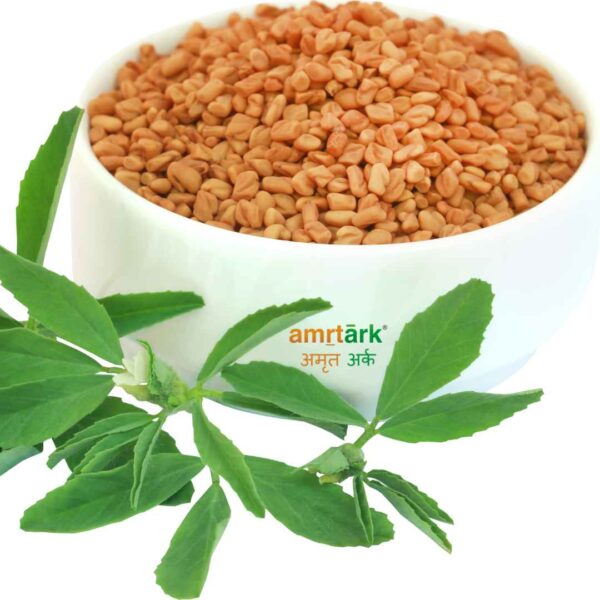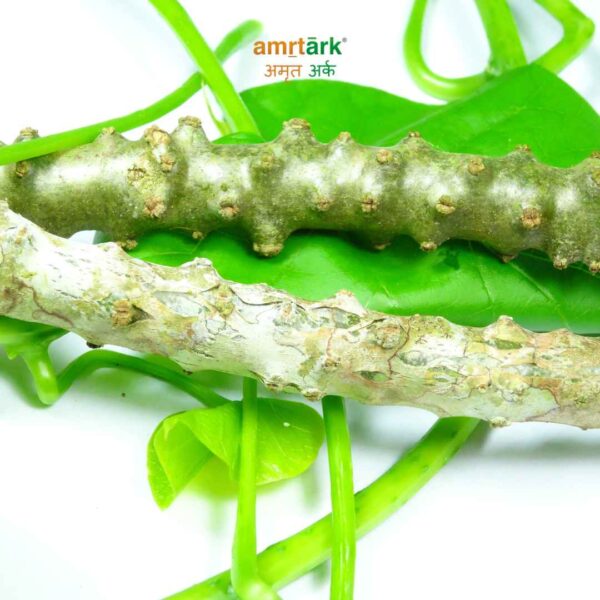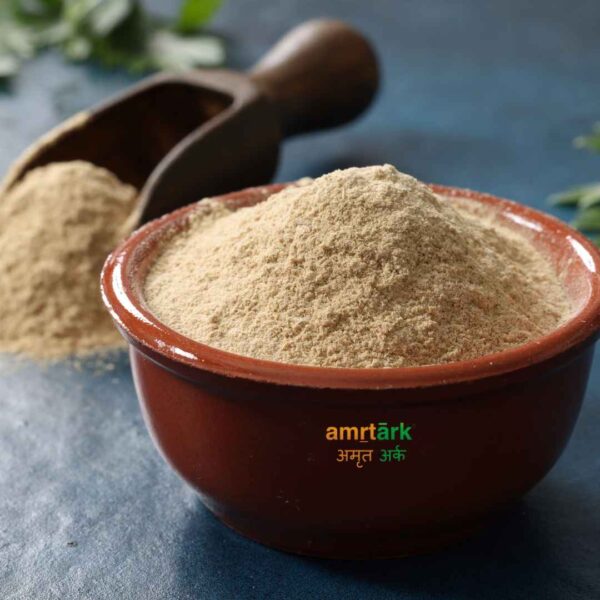Description
Ajwain (Carom Seeds)
Ajwain, also known as Carom Seeds, is a spice widely used in Indian cuisine for its intense flavor and numerous health benefits. The seeds come from the Trachyspermum ammi plant and have a strong, pungent, and slightly bitter taste, somewhat similar to thyme but more intense due to their high content of thymol. Ajwain is not only a staple in Indian cooking but also an important ingredient in traditional medicine, particularly Ayurveda and Unani practices.
Botanical Characteristics
- Common Names: Ajwain, Carom Seeds, Omam, Ajowan, Bishop’s Weed
- Scientific Name: Trachyspermum ammi
- Family: Apiaceae (same family as parsley, cumin, and dill)
- Appearance: Ajwain seeds are tiny, oval-shaped, and ridged. They are grayish-green in color, resembling cumin seeds, but smaller in size. The seeds have a distinct aroma due to their thymol content.
Flavor Profile
Ajwain has a strong, spicy, and slightly bitter taste, similar to oregano and anise. The flavor is intense and should be used sparingly in cooking, as it can quickly overpower a dish. The seeds are often lightly toasted or crushed to release their full flavor before adding to dishes.
Culinary Uses of Ajwain
Ajwain is commonly used in Indian, Middle Eastern, and North African cuisines. Some of its culinary applications include:
- Indian Cuisine: In Indian cooking, Ajwain is used in a variety of dishes, including parathas, puri, pakoras, and dal. It is often added to bread dough and fried snacks to enhance their flavor and aid digestion.
- Tempering (Tadka): Ajwain is frequently used in tempering, where it is briefly fried in oil or ghee to release its essential oils and enhance its flavor before being added to curries, dals, and vegetable dishes.
- Spice Blends: Ajwain is a common ingredient in spice mixes like chaat masala and panch phoron (a five-spice mix from Bengal) and is also used in pickles and chutneys.
- Baking: In Middle Eastern and Indian cuisines, Ajwain is used in bread and pastry recipes, such as ajwain biscuits, adding a burst of pungent flavor to savory baked goods.
- Preservative and Flavor Enhancer: Ajwain is often used in pickling and preserving because of its antimicrobial properties. Its strong flavor also helps enhance the taste of preserved foods.
Health Benefits of Ajwain (Carom Seeds)
Ajwain seeds are rich in medicinal properties, owing largely to their thymol content. Ajwain is known for its digestive benefits and is commonly used as a remedy for various gastrointestinal issues. Here are some key health benefits of Ajwain:
- Aids Digestion: Ajwain is famous for its carminative properties, meaning it helps prevent the formation of gas in the digestive tract. It is often consumed after meals to relieve indigestion, bloating, and flatulence. Ajwain promotes the secretion of digestive enzymes, improving the breakdown and absorption of food.
- Relieves Acidity: Consuming Ajwain with a pinch of salt and warm water is a popular remedy for acid reflux and heartburn. The seeds help balance stomach acidity, providing relief from discomfort.
- Anti-inflammatory Properties: Ajwain seeds contain compounds that have anti-inflammatory effects, making them beneficial for reducing inflammation in conditions like arthritis and joint pain. Ajwain oil is sometimes applied topically to relieve pain and swelling.
- Antimicrobial and Antifungal: The thymol in Ajwain seeds has strong antimicrobial and antifungal properties. Ajwain oil is often used to treat skin infections, wounds, and insect bites. Consuming Ajwain can also help fight internal infections and support the immune system.
- Respiratory Health: Ajwain is a natural expectorant and helps in relieving cough, asthma, bronchitis, and congestion. Ajwain water or steam inhalation with Ajwain seeds is a common remedy for clearing nasal passages and easing breathing difficulties.
- Regulates Blood Pressure: Ajwain seeds are known to have a mild antihypertensive effect, which can help regulate blood pressure. The seeds help relax blood vessels, reducing pressure and promoting better circulation.
- Weight Loss Aid: Ajwain water is often consumed as part of weight-loss regimens because it helps improve digestion and metabolism. Drinking Ajwain-infused water can promote better fat breakdown and reduce bloating.
- Relieves Menstrual Pain: Ajwain is used in traditional remedies to ease menstrual pain and cramps. Its muscle-relaxing properties help in relieving discomfort during menstruation.
- Improves Oral Health: Ajwain’s antimicrobial properties make it beneficial for oral health. Chewing Ajwain seeds can help reduce bad breath and maintain dental hygiene by fighting oral bacteria.
Traditional and Ayurvedic Uses
In Ayurveda, Ajwain is considered to have warming properties, making it useful for balancing the Vata and Kapha doshas. It is used as a remedy for cold, cough, indigestion, and other respiratory issues. Ajwain is often combined with other herbs to enhance its healing effects.
Ajwain is also a key component in Unani medicine, where it is used to treat digestive issues, respiratory ailments, and infections. It is often consumed in the form of Ajwain water, an infusion made by boiling the seeds in water, which is believed to have detoxifying properties.
Modern Uses and Forms
Ajwain is available in various forms for culinary and medicinal purposes:
- Ajwain Seeds: The whole seeds are used in cooking and home remedies.
- Ajwain Powder: Ground Ajwain is used in spice blends, pickles, and masalas.
- Ajwain Oil: Extracted from the seeds, Ajwain oil is used in aromatherapy and for topical application to relieve pain and inflammation.
- Ajwain Water: Ajwain-infused water is commonly consumed to aid digestion and relieve bloating.
How to Use Ajwain
- As a Digestive Aid: Simply chew a small amount of Ajwain seeds after meals, or make Ajwain water by boiling a teaspoon of seeds in water, then drinking it warm.
- For Cough and Cold Relief: Add Ajwain seeds to boiling water and inhale the steam to relieve congestion. Alternatively, Ajwain can be added to tea with honey to soothe a sore throat.
- In Cooking: Ajwain can be toasted and added to curries, stews, or bread dough to impart a distinctive flavor. It is often used in small quantities because of its strong taste.
Side Effects and Precautions
While Ajwain is generally safe for most people, there are a few precautions to keep in mind:
- Pregnancy: Pregnant women should avoid consuming large amounts of Ajwain, as it may stimulate the uterus and lead to premature contractions.
- Overconsumption: Excessive consumption of Ajwain may cause nausea, heartburn, or an increase in acidity in some individuals.
- Allergic Reactions: Some people may be allergic to Ajwain, experiencing symptoms like itching, rash, or swelling.

